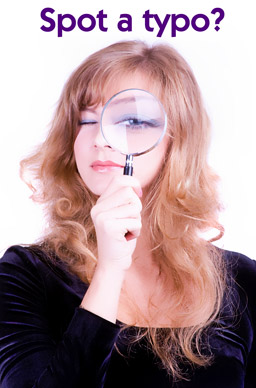More creative, less racist
New research suggests an inverse association between creativity and racism. In other words, more creative, less racist. Or less creative, more racist.
“Results from a follow-up study showed that the link between racial essentialism and decreased creativity could be explained, at least in part, by an increase in closed-mindedness. Together, these studies suggest that essentialism exerts its negative effects on creativity by changing how people think, as opposed to changing what they think. This finding fits with previous research on information processing and creativity.” (source)
It also fits with what I observed in my life. Decades before it was hip to oppose racism, my brother and I made fun of one of our grandfathers who was burning with racial hatred and hatred in general. One of my great-grandfathers (on the other side of the family) was murdered by a racist waging a racial war, so I hated the haters when I was a kid in elementary school but didn't give much thought to racism until I became a doctor and discovered that some healthcare practitioners intentionally murder black patients.
Then I learned about something my teachers and professors never mentioned: that Japanese soldiers before and during World War II committed shockingly savage war crimes that included gang-raping infants, kids, teenagers, pregnant women, and grandmothers before killing and sometimes sexually mutilating them by spearing their vaginas. Here's one of their victims from the Nanjing Massacre in China:

I documented similar crimes in articles on Japanese war crimes and Hirohito: the war criminal who got off scot-free. Regardless of what inspired it—nationalism, fanaticism—it was still blatant racism. Japanese have profound respect for their elders, yet many of their soldiers (their war crimes were more numerous than those committed by nutjob Hitler and the loony Germans who followed that madman) raped and brutalized elders and others in neighboring nations. They also made a sport out of butchering people. How neighborly is that? This alarmingly differential treatment is itself evidence of racism.
As I thought about those crimes against humanity and spent months researching and writing about them, it catalyzed the animosity I felt about racists. Interestingly, as my feelings intensified, my creativity soared, going from an occasional invention to a flood of them. I now work as an inventor and my boss is pleased with my creativity seeing perhaps 1% of it; I have considerably more ideas than I can feasibly submit to him.
Offhand, I can't think of any very creative person who was racist, but there are myriad racists who don't have a creative bone in their bodies or a single good creative idea in their entire lives.
Unfortunately, racism has been politicized in the United States, exploited by partisans with a hair-trigger for seeing racism in their opponents but stark blindness for detecting utter hatred in their ranks. Partisans are eager to equate occasional PC faux pas as clear-cut evidence of racism, but the PC minefield is so extensive that virtually everyone makes regrettable PC blunders—even Harvard-educated President Obama.
The list of PC rules is so long that most people probably don't know half of them—even educated people. For example, a psychologist friend told me about one of her professors who often used the word “Oriental” in class. I asked her what was wrong with that. She replied that he never used the word disparagingly but it was considered somewhat offensive. That was news to me because I thought it was a term of respect! When gushing to my Mom about a Japanese professor I adored, I described him as a “nice Oriental gentleman”—thus the use of that word was purely a result of ignorance, not racism. Oriental cuisine and Oriental medicine are “not usually considered objectionable,” but Oriental is. Go figure.
Similarly, I thought “Jap” was just an abbreviation for Japanese. Indeed, the dictionary I read when I was a teenager, and the dictionary I still have, lists “Jap” as an abbreviation for Japan or Japanese. In my opinion, I think it would be wise for good Japanese people to embrace “Jap” as a useful way to distance themselves from bad war criminals in their past. The Japanese culture is one of the shining success stories in world history, but their sordid (fortunately brief) departure from that greatness mars their history and doesn't fit in with it.
PC blunders are not a good racism detector. What is? Watch Mississippi Burning and see if you don't have a burning desire to combat racism, or read about what Japanese war criminals did to people in China and other Asian nations, and how their leader got off scot-free.
The men who murdered my father have (so far) gotten off scot-free, and the racists who killed my great-grandfather never felt any pain for the agonizing pain they inflicted on him. People have an innate desire for justice, but I can't bash the haters who slaughtered family members. Perhaps in an attempt to achieve some vicarious justice, I focused on racist crimes and other manifestations of might makes right (example), which is one of my pet peeves. As my passion for this subject grew my creativity went into overdrive, but was that cause and effect or both a product of something I serendipitously did that increased my empathy? As the empathy increased, my intelligence did, too. Invention challenges I struggled with for years I could now solve in a flash with ease.
The researchers mentioned in Racial Essentialism Reduces Creative Thinking, Makes People More Closed-Minded said it may be “possible to use these findings to devise an intervention program that reduces racial essentialist beliefs, thereby leading participants not only to become more socially tolerant but also to unleash their creative potential in the process.”
I agree. The United States desperately needs more creativity to jumpstart our economy; there are practical limits to productivity, but not creativity. We also need to address the fundamental roots of racism, not sweep it under the rug and play silly partisan-inspired PC games when an opponent makes a PC blunder, which makes a mockery of what racism truly is. Perhaps there is a common solution to both problems.
Related topics
My forthcoming book: Rapidly Overcoming Racism, Bigotry, and Homophobia
Notes:
“The test of a first-rate intelligence is the ability to hold two opposed ideas in mind at the same time and still retain the ability to function.”
— F. Scott Fitzgerald
Reference: Imagining dialogue can boost critical thinking: Excerpt: “Examining an issue as a debate or dialogue between two sides helps people apply deeper, more sophisticated reasoning …”

